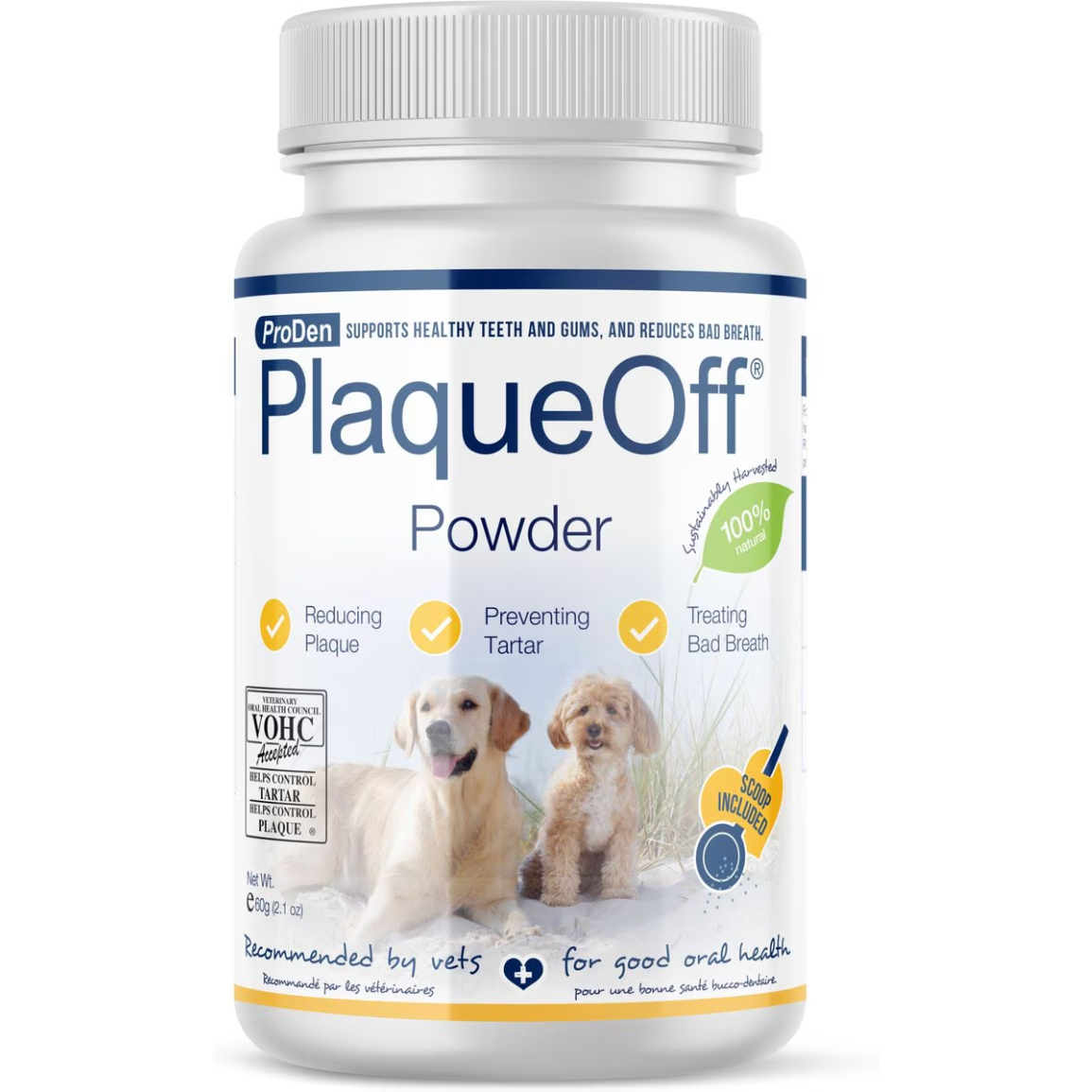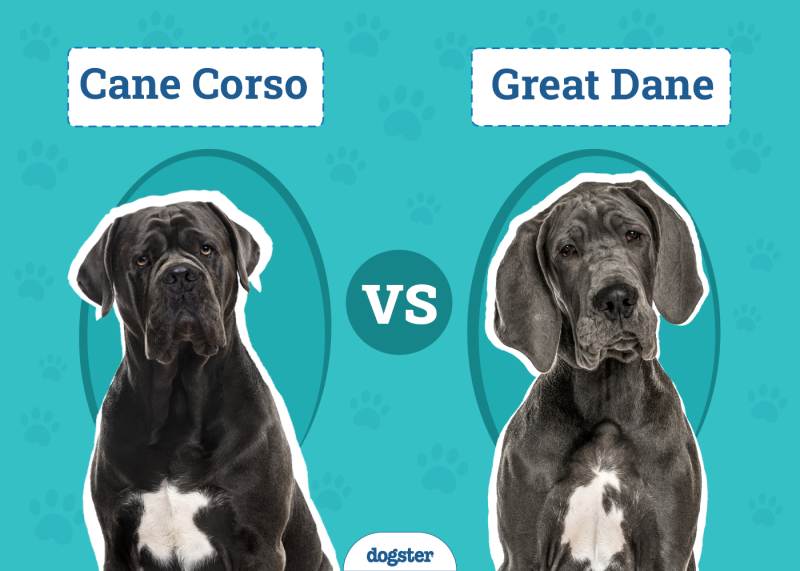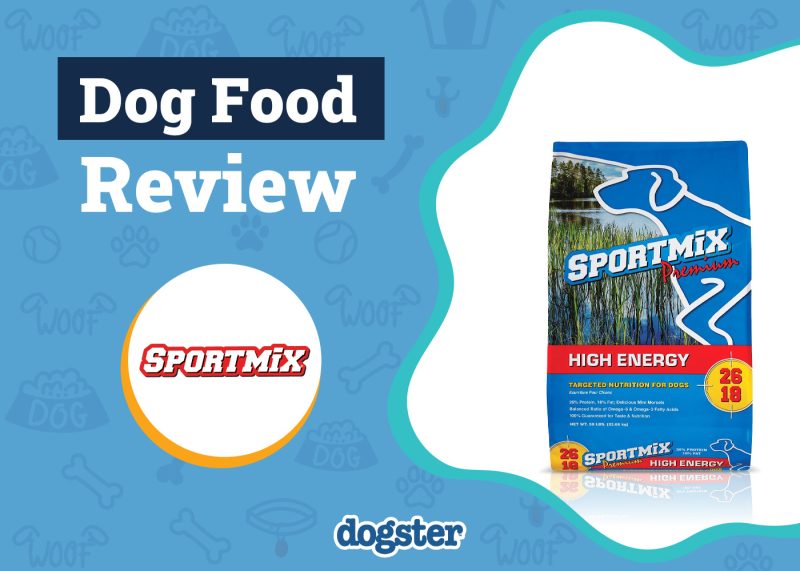
In this article

A Quick Look at Our Favorites in 2026
| Rating | Image | Product | Details | |
|---|---|---|---|---|
| Best Overall |

|
Bark&Spark Omega 3 Skin & Coat Dog Supplement |
|
Check Price |
| Best Value |

|
ProDen PlaqueOff Powder Dog & Cat Supplement |
|
Check Price |
| Premium Choice |

|
Nutramax Denamarin Liver Health Supplement For Medium Dogs |
|
Check Price |
| Best for Puppies |

|
PetHonesty Multivitamin 10-in-1 Dog Supplement |
|
Check Price |

|
Greenies Calming Supplement for Dogs |
|
Check Price |
The 10 Best Dog Supplements
1. Bark&Spark Omega 3 Skin & Coat Dog Supplement – Best Overall

| Active Ingredients: | Omega-6, omega-3, EPA, DHA |
| Benefits: | Anti-inflammatory |
Omega-3s and 6s are excellent supplements that can help with immune health, brain development, and specific conditions like arthritis, dry skin, and kidney disease. The Bark&Spark Omega 3 Skin & Coat Dog Supplement provides these omega-3s in a concentrated and convenient chew that we think most dogs will enjoy.
Since the price tag is modest, and almost any dog can benefit from these supplements, Bark&Spark Omega 3 Skin & Coat Dog Supplement has earned our best overall spot for dog supplements of 2024.
Although the reviews of this product are positive overall, some consumers noted their dogs didn’t like the chews, and others didn’t see the skin benefits they expected.
- Multiple benefits
- Inexpensive
- Not a cure-all for skin disease
- Some dogs don’t enjoy them
2. ProDen PlaqueOff Powder Dog & Cat Supplement – Best Value

| Active Ingredients: | Seaweed |
| Benefits: | Dental health |
Alongside regular teeth brushing, you can use products approved by the Veterinary Oral Health Council to keep your dog’s mouth healthy.1 ProDen PlaqueOff Powder Dog & Cat Supplement is one such product. Their trademark ingredient is not specified, but the product is 100% seaweed, possibly similar to Ascophyllum nodosum, which has proven to positively affect a dog’s dental health when used regularly after a dental clean.
The manufacturers suggest results can be seen in 3–8 weeks. It is easy to administer as a topper or mixed in any dog food. You can start as soon as your pup has their adult teeth at around 6 months old. When you consider the cost of dental care, this reasonably priced formula is the best supplement for the money.
Of course, it’s not a miracle cure but rather part of an overall plan. The tub will last 6 months for a medium-sized dog and 1 year for a small dog. Most owners were satisfied with this product, but others were disappointed with the results. It’s best to introduce this supplement slowly to your dog’s diet, as some dogs can experience vomiting, diarrhea, or looser stools when using it.
- Fast results
- Inexpensive
- Best used as a preventative
- Can cause gastrointestinal upset
3. Nutramax Denamarin Liver Health Supplement – Premium Choice

| Active Ingredients: | SAMe, SPC |
| Benefits: | Liver support |
Nutramax Denamarin for Liver Health Tablets for Medium Dogs are designed for dogs with liver problems who need extra support. S-adenosylmethionine (SAMe) is the biologically active form of the amino acid methionine, which has antioxidant and detoxifying effects. Silybin-phosphatidylcholine complex (SPC) is the bioavailable form of Silybin, found in milk thistle. It’s an antioxidant and anti-inflammatory substance supporting some metabolic pathways in the liver. The combination may also support brain functions.
The supplement is in the form of tablets, which must be given on an empty stomach. Some dogs don’t like taking them, but there are formulas for large and small dogs.
- Improves liver health
- Options for small, medium, and large dogs
- Pricey
- Can be difficult to give
4. PetHonesty Multivitamin 10-in-1 Dog Supplement – Best for Puppies

| Active Ingredients: | Pumpkin, glucosamine, Purfor MSM, chondroitin sulfate, small fish oil probiotic blend |
| Benefits: | Coat, digestion, joint, skin, brain and immune system |
The most important canine nutrition will come from high-quality, balanced dog food. Multivitamin supplements are not generally needed, but we think PetHonesty Multivitamin 10-in-1 provides some great ingredients for all-round health. This supplement can be fed daily to dogs of any age. Fiber and probiotics improve the digestive system, fish oil provides a source of omega-3s, and glucosamine, chondroitin sulfate, and Purfor MSM protect the joints. The supplement is fortified with antioxidants for immune health.
You will find other products with higher concentrations of some active ingredients. For example, the fish oil and glucosamine content are lower than others on this list. So, you might be better off looking elsewhere if you’re after one specific benefit. Some dogs also don’t like these chews, and some owners don’t like the dry, crumbly texture.
- Multiple benefits
- Can be used for puppies
- Low concentrations of some ingredients
- Dry texture
- Some dogs don’t like it

Supplements for Anxiety
5. Greenies Calming Supplement for Dogs

| Active Ingredients: | L-tryptophan, L-theanine |
| Benefits: | Calming |
Another tasty chew, Greenies Calming Chicken Flavored Soft Chew Calming Supplement for Dogs, delivers 540mg of L-tryptophan and 110mg of L-theanine per chew. Tryptophan is an amino acid that is a precursor of serotonin. Theanine is an amino acid extracted from green tea leaves that changes the brain chemistry to produce calming effects.
While we know a supplement will never ease severe phobias or behavioral issues, this is a good option for mildly anxious dogs or as part of a multimodal approach to more serious issues. Dogs weighing over 50 pounds will need three chews a day, so you could go through these chews fairly quickly.
The chews are free from artificial flavors, preservatives, and colors. Some dogs don’t like them, and the ingredients list includes chicken, so it won’t work for pups with a chicken allergy.
- Calming effects
- Quality ingredients list
- Won’t work for severe problems
- Chicken flavor only
- Some dogs may need 3 chews a day
6. Purina Pro Plan Calming Care Supplement for Dogs

| Active Ingredients: | Bifidobacterium longum |
| Benefits: | Calming |
The Purina Pro Plan Veterinary Diets Calming Care Liver Flavored Powder Calming Supplement for Dogs uses a unique approach to help calm dogs experiencing stressful situations. It uses a probiotic, Bifidobacterium longum or BL999, which is at the forefront of veterinary research into the links between gut and brain health.
Purina makes some strong claims about the efficacy of this product; it may help 90% of dogs in stressful situations. The probiotic is delivered in a liver-flavored powder that can be mixed into food.
To see the effects, it needs to be given daily, possibly for up to 6 weeks. With only 30 in a pack, this is one of the more expensive supplements available.
- Calming effects
- Unique product
- Calming effects
- Unique product

Supplements for Gut Health
7. Purina Pro Plan FortiFlora Digestive Supplement for Dogs

| Active Ingredients: | Enterococcus faecium |
| Benefits: | Gut health |
Probiotics add good bacteria into your dog’s digestive system to restore gut health and healthy digestion. The good bacteria can out-compete bad bacteria if your dog has an intestinal infection. Purina Pro Plan’s Veterinary Diets FortiFlora Powder Digestive Supplement for Dogs provides live probiotics that are encapsulated so they can survive until reaching your dog’s intestinal tract.
It comes in a powder that works as a topper or can be mixed into your pet’s meals. It is designed to help with diarrhea and may also reduce flatulence. The supplement also features antioxidants to boost your pet’s immune system.
You can administer it when your dog has episodes of diarrhea or as a daily supplement. It won’t help in all cases of diarrhea; it depends on the underlying cause, and the cost can add up if you’re using it every day.
- Promotes healthy digestion and immune system
- Can be used as needed
- Pricey
- Not a cure-all for diarrhea
8. Vetnique Labs Glandex Anal Gland Dog Supplement

| Active Ingredients: | MegaFiber proprietary blend, probiotic blend, quercetin |
| Benefits: | Gut and anal gland health |
Loose stools can lead to anal gland trouble and scooting bottoms. The Glandex Advanced Vet Strength Anal Gland Supplement are chews that provide vast amounts of fiber as well as probiotics and prebiotics for good gut health and bulky stools, which help anal gland emptying.
It also incorporates digestive enzymes and quercetin, an antioxidant that may have an anti-inflammatory effect. All of these combined help minimize any anal gland trouble.
Since many dogs with anal gland trouble have food allergies, the Glandex chews have been designed to be hypoallergenic for dogs with protein allergies. They can be used on dogs older than 3 months.
Large dogs over 75 pounds need four chews a day, so you could go through a tub of chews very quickly if you have a big dog. On average, dogs seem to improve in 3–5 weeks, although some may take months.
- Gut health
- Helps anal gland emptying
- Hypoallergenic
- Large dogs need 4 chews a day

Supplements for Joint Care
9. Nutramax Dasuquin Joint Supplement for Small & Medium Dogs

| Active Ingredients: | Glucosamine Hydrochloride, Sodium Chondroitin Sulfate, MSM |
| Benefits: | Joint health |
If your dog has mobility problems resulting from osteoarthritis, Nutramax Dasuquin Hip & Joint Soft Chews Joint Supplement is a great joint supplement. It contains 600 mg of glucosamine hydrochloride and 250 mg of sodium chondroitin sulfate per chew.
The bag of 84 can last a long time, and dogs under 29 pounds can eat one chew every other day after 4–6 weeks of one chew a day. Nutramax also offers a large dog formula for dogs over 60 pounds. The specialty ingredient methylsulfonylmethane (MSM) provides anti-inflammatory and antioxidant benefits.
Most customers saw an improvement in their dog’s mobility and found their dogs enjoyed it, but others noted their dogs didn’t like the chews. Some very small dogs or those with dental problems may need the treat broken up for them. You can choose between a soft chew or a chewable tablet.
- Improves mobility
- Available as a soft chew or chewable tablet
- Some dogs don’t like the chews
- Can be tough to chew
10. Nutramax Cosequin Joint Supplement for Dogs

| Active Ingredients: | Glucosamine Hydrochloride, Sodium Chondroitin Sulfate, MSM, Omega-3s |
| Benefits: | Joint health |
Cosequin Hip & Joint with Glucosamine is similar to Dasuquin but with the addition of omega-3s and more chondroitin in the formula. Despite being designed to help the joints, the 0mega-3s have additional health benefits, including skin and coat health. The combination of ingredients in Cosequin works together to maintain the structure of the cartilage in your dog’s joints while inhibiting the enzymes that destroy cartilage.
80% of dogs improved while taking this supplement. You can expect to see results in 4–6 weeks, but some dogs can improve quicker and more dramatically than others. It is slightly more expensive than Dasuquin but has the same options for soft chews or chewable tablets. As with any supplement, it may not agree with some dogs, leading to diarrhea in some cases.
- Improves mobility
- Skin and coat health
- Available as a soft chew or chewable tablet
- Some dogs may experience diarrhea

Buyer’s Guide: Choosing the Best Dog Supplements
There are so many options when looking for a supplement that they will make your head spin. To ensure you get the ideal product for your dog, there are a few key areas to consider.

Ingredients List
The ingredients in the supplement are one of the most important aspects to consider. Don’t be sucked into fancy labels since the ingredients list in some products simply do not deliver. Ideally, the ingredients will have some scientific basis or proven benefits. You may have specific health concerns for your dog, so make a list of ingredients that could help with your concerns.
In addition to the ingredients, you should consider the concentration of the ingredients. While more is not always better, comparing products should give you an idea of the standards and how a potential supplement compares.
If your dog has any known allergies or intolerances, you will also want to check the products for additional, inactive ingredients that might not agree with your dog.
Product Form
Supplements come in powders, chews, capsules, liquids, and tablets. When choosing a product, think about what’s easiest for you to give your dog. Your supplement won’t do any good if you can’t get it into your dog. While the form is not the most important factor, it should at least be doable for you to give as often as needed.
Cost of Supplements
The cost of supplements can be deceptive. For example, you could spend less upfront but find that your chosen brand doesn’t last as long as another one would have. Look at the initial cost, how much you get, how much you need to give, and how often you need to give it.
For example, option A costs $30, and you get 60 tablets, but you need to give three tablets a day. This means a $30 tub will last 20 days. Option B, however, costs $40, and you get 60 tablets, but you only need to give one tablet a day. This means a $40 tub will last 60 days, making it the cheaper option.
Veterinarian Recommendation
Even the safest ingredients can have unwanted effects on some animals. For example, probiotics are bacteria that are not harmful to healthy animals, but those with weak immune systems could become sick from any additional bacteria. Since a vet knows dogs’ health and needs, they are the best person to approve and recommend supplements for them.
If you need to speak with a vet but can't get to one, head over to PangoVet. It's our online service where you can talk to a vet online and get the personalized advice you need for your pet — all at an affordable price!
How We Selected These Dog Supplements
This buyer’s guide was carefully crafted by our writers and editors in collaboration with our team of in-house veterinarians. The dog supplements reviewed here are rated on a combination of factors: brand reputation, customer reviews across multiple retail outlets, personal experience, and in some cases, feedback from our own dogs! Together, we choose and review only the best dog supplements available, to help you make the most informed decisions that foster the well-being of your furry friends.
Why Trust Dogster?
Dogster has been a trusted brand for dog owners online since 2004, which means we have a lot of experience with dog supplements. We are a team of passionate dog owners who care about our pups as much as you do yours. We want the best for every canine on the planet. Dogster’s writers, editors, and veterinarians are deeply invested in the well-being of our pets, and we believe that all pet owners share this dedication to providing only the highest quality products and services for our dogs.

Final Thoughts
While supplements are diverse, and there is no supplement ideal for every dog, we have mentioned a few of our favorites. If your dog has no specific ailments Bark&Spark Omega 3 Skin & Coat Dog Supplement and PetHonesty Multivitamin 10-in-1 provide multiple benefits at a reasonable price. ProDen PlaqueOff Powder Dog & Cat Supplement is a low-cost formula that can benefit most dogs’ dental health. We hope these reviews help you find the best supplement for your pal. If you don’t see something perfect on this list, it will at least be a good starting point for which ingredients to look for in a product.
- Related post: Hawthorn for Dogs
Featured Image Credit: Snezhana_G, Shutterstock





















